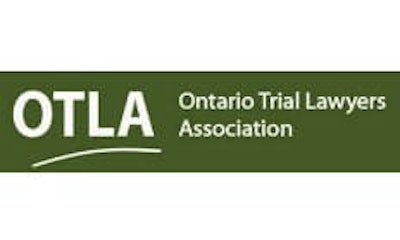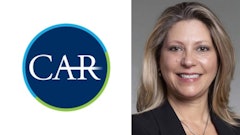
By Jeff Sanford
Toronto, Ontario — October 15, 2015 — A fascinating, incendiary new report prepared by the Ontario Trial Lawyers Association (OTLA) suggests that the auto insurance in Canada’s largest province is in deep need of reform.
The Ontario Trial Lawyers Association (OTLA) hired two York University Schulich School of Business Professors, Fred Lazar and Eli Prisman, to study the auto insurance industry in Ontario. The results of that study are revealing. The main suggestion is that consumers in Ontario “likely” overpaid their policies by a mighty $1.5 billion over the last two years. As a result the OTLA is calling on the Ontario Auditor General to conduct an independent review of the auto insurance sector in the province.
The OTLA study will provide ammunition to those critical of the Ontario auto insurance industry. According to the study, overpayments to auto insurers in 2014 were $700 million, or about $100 for each insurance policy in the province. The study also suggests Ontarians overpaid their premiums by another $840 million (or $120 per policy) in 2013.
One of the key arguments in the report has to do with the profit margin insurance companies are allowed to make. As the report points out, Ontario’s insurers are regulated by the Financial Services Commission of Ontario (FSCO). FSCO has traditionally set the benchmark for auto insurer profits as a return on equity (ROE) of 12 percent. The York profs, Drs. Lazar and Prisman, concluded that the 12 percent benchmark ROE is much too high given that interest rates are at historically low levels.
That is, insurance companies can borrow money at near zero percent interest rates right now. But they are able to generate returns of 12 percent. The spread, according to the authors of the report, is much too wide. A more realistic and appropriate benchmark for ROE would be in the range of 5.8 percent. FSCO recently seemed to bow to the reality of radically low interest rates and reduced the profit cap to 11 percent of ROE. But this is still an extremely high spread in historical terms. With the amounts insurance companies have to pay to injured persons having been slashed over the past few years, the auto insurance industry has been making billions of dollars more than would otherwise be the case in Ontario. According to a statement from OTLA, this is creating a system where people injured in car accidents are suffering, average citizens are paying high premiums, but the shareholders and executives of insurance companies are being flooded with money.
“Clearly Ontario’s auto insurance system is in deep trouble,” said Maia Bent, President of OTLA. “Not only are drivers paying through the nose, but the policy is not worth the paper it’s written on. Victims are being seriously hurt and it’s about to get even worse when further reductions are implemented. It is not an exaggeration to say that we are fast approaching a crisis for accident victims.”
The Ontario Liberal government has been under fire for not delivering on its promise to reduce auto insurance rates by 15 percent. The Liberals had promised the NDP they would do this in exchange for NDP-support in the legislature. The time-line for the delivery of the rate reduction has come and gone. In reaction, yesterday, the Ontario Ministry of Finance announced a program that will see the province provide a discount on their insurance who buy and install winter tires. The government press release announcing the policy suggests the move means “Ontario is moving forward with its plan to help lower auto insurance rates.” But the idea of a discount on snow tires to fulfill their promise seems almost farcical. If consumers have to buy expensive winter tires to get a discount (that is surely not going to be more than the cost of the tires) can this really be considered a decrease in rates? The Liberal government has taken a regular amount of flack for its inability to carry through on its insurance promise. The latest announcement seems a desperate ploy to manage the fallout from the lack of action on the insurance file. The OTLA report is sure to add gasoline to the fire.
“These repeated ‘insurance reform initiatives’ have clearly only benefited insurance companies by generating record profits,” said Bent. “Total industry wide profits in 2014 alone were 10.6 per cent – or nearly twice the levels considered reasonable. Ontario auto insurance companies pocket massive profits while accident victims get short-changed, and drivers continue to pay excessive rates.”
The OTLA also “strongly recommends” that Ontario’s Auditor General conduct a fully independent review of auto insurance in Ontario that is focused on “premiums, insurance coverage and industry profits” according to a press release.
“We need a critical re-examination of auto insurance in Ontario and the auditor is well positioned to provide a truly independent review. At a minimum, we need to advance the discussion about auto insurance beyond the simplistic idea that the only thing that matters is the price we pay,” said Bent.
Last week the Ontario government appointed David Marshall as a special advisor on auto insurance (see more on this here). The OTLA thinks this a good idea. “We look forward to working with David Marshall and with all stakeholders in the auto insurance system. We need real reform initiatives that strike an appropriate balance among all interests – that means fair and affordable premiums, appropriate and timely treatment for victims, as well as reasonable profits for insurers,” said Bent. “We have a long way to go to restoring balance and ensuring justice for accident victims and fairness for drivers.”
The Ontario Trial Lawyers Association was founded in 1991 and is made up of 1,600 plaintiff lawyers, law clerks, articling students and law students.





















